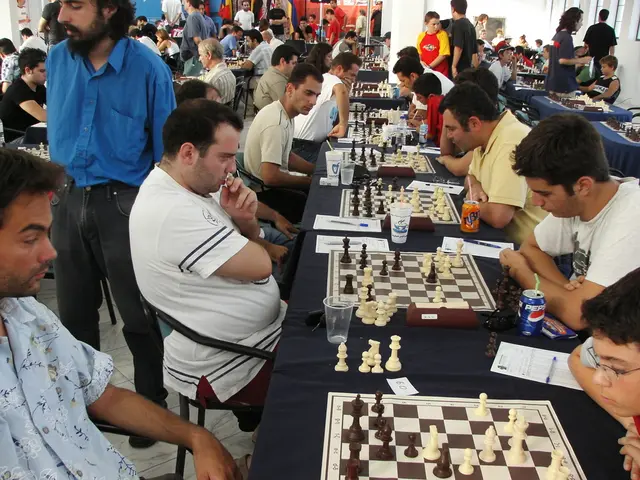Glossary of Poker Jargon
In the world of poker, understanding the basics is just the beginning. To truly excel, one must delve into the intricacies of advanced terms and strategies. Here, we explore some essential concepts that can significantly improve your gameplay.
Fundamental Poker Terms:
- Muck: To discard a hand.
- Blind: A forced bet that must be made before the cards are dealt.
- Action: The betting within a poker hand.
- Check: To decline to bet or to pass when it is your turn to act.
- Call: To place an amount of money equal to a previous opponent's bet.
- Raise: To place a higher bet than an opponent has already placed.
- Bluff: To bet with an inferior hand in the hope that your opponents will fold.
- Muck: To discard a hand.
- Middle Pair: To have a pair containing the second highest card on the board.
- Overcard: A card that is higher than other cards, usually in reference to community cards that are higher than your hole cards.
- Position: Your place in the order of betting action.
- Suited: Cards of the same suit (such as 4 and 7).
- Pot: All money that has been bet in a hand.
- Steal: To force an opponent to fold when you don't have the best hand.
- Community Cards: Cards placed in the middle of the table and shared by all players.
- Button: A token that represents the dealer position (the last to act in most games after the first round).
- Rake: The amount a card room takes from each pot, usually a percentage that has a set upper limit.
- Tilt: When a player is emotionally upset and starts making poor decisions.
- Gutshot: A straight draw that requires a card in the middle to hit to complete the straight.
- Outs: Cards that can come that will improve your hand.
- Set: Three of a kind (such as three jacks).
- Board: Community cards.
- Heads-Up: Playing against a single opponent.
- Side Pot: An additional pot created when one player is all in and two or more other players are still betting.
- Hole Cards: The first cards dealt to you that your opponents cannot see.
- Wired Pair: When your hole cards contain a pair.
- Back Door: A draw that requires two cards to complete a straight, flush, or full house.
Advanced Poker Terms:
- ICM (Independent Chip Model): Converts your chip stack into estimated monetary value, essential for tournament decisions, particularly to weigh risk versus reward near payout “bubble” phases.
- Implied Odds: The potential future winnings relative to the current call or bet amount, helping you determine if drawing hands are worth playing.
- Isolation: Making a bet or raise to force other opponents out, creating a heads-up pot with a specific player.
- In Position: Acting after your opponents, allowing you to use more information before making decisions, a critical factor in advanced strategy.
- Expected Value (EV): Calculating the profitability of each move in the long run, fundamental for making consistently profitable decisions.
Advanced Strategies:
- Expected Value (EV) Calculations: Understand how to estimate the EV of your actions (bet, call, fold) to ensure long-term profitability. This skill allows for optimal bet sizing and correct decision-making under uncertainty.
- ICM and Bubble Factor Awareness: In tournaments, particularly Sit and Go’s, correctly applying ICM and recognizing the bubble phase impact your decisions about survival versus chip accumulation. Playing more conservatively near the bubble is often correct to preserve your equity.
- Bluffing and Semi-Bluffing: Timing your bluffs well (preferably later stages and against tight players) and using semi-bluffs—betting with drawing hands that can improve—adds pressure and multiple ways to win pots.
- Post-Flop Strategy and Game Theory Optimal (GTO): Use GTO principles as a baseline but mix in exploitative play based on reads and opponent tendencies. Adjusting your strategy flexibly to the table dynamics is key.
- Range-Versus-Range Analysis: Evaluate your hand range against your opponent’s range relative to the board texture to decide when to be aggressive. When your theoretical range is stronger on a certain board, you can profitably bet multiple times.
- Using a HUD (Heads-Up Display) in Online Poker: If available, track opponents' stats like fold, raise, and call frequencies to adjust your strategy, e.g., bluff more against players who fold often to 3-bets.
- Putting Yourself in Opponents’ Shoes: Reflect on how your opponents perceive the hand and what they might do if roles were reversed. This mental exercise helps you gauge control and adjust betting accordingly.
- Mental Resilience and Discipline: Control tilt and maintain focus on the bigger picture to improve long-term performance, especially important in tournament settings.
By mastering these terms and integrating these strategies, you'll develop a deeper understanding of the game and improve your decision-making at both cash and tournament tables.
Other essential terms include:
- Quads: Four of a kind (such as four aces).
- Pair: Two cards that are the same rank (such as two kings).
- Flop: The first three community cards in Texas Hold'em and Omaha.
- Limit: The set amount or amounts that may be bet, often expressed as 5/10 ($5 bets on the first two rounds and $10 bets thereafter).
- Tell: An action that a player makes that gives away the strength of their hand.
- All-In: To place all of the chips you have on the table into the pot.
- Short Stacked: To have the smallest stack of chips at the table.
- Bankroll: The amount of money you have available with which to play poker over a particular period of time.
- Tight: To play fewer hands than normal.
- Back Door: A draw that requires two cards to complete a straight, flush, or full house.
- Implied Odds: Bets that you can reasonably expect to collect in addition to the bets already in the pot if you hit your hand.
- Trips: Three of a kind (such as three queens).
- Under the Gun: The first person who must act on the first round of betting.
- Limp-In: To enter a hand with a call before the flop.
- Side Pot: An additional pot created when one player is all in and two or more other players are still betting.
These advanced terms and strategies can significantly improve your gameplay and help you become a more formidable poker player. Happy learning, and may the odds be ever in your favour!
In the continuing exploration of enhancing poker skills, a closer look at casino-and-gambling highlights the importance of understanding casino-games like poker beyond the basics. Mastering subjects like Improved Chip Model (ICM) and Implied Odds can potentially bring in more money, as they allow for better analysis of monetary value and potential future winnings. Additionally, strategies such as bluffing and semi-bluffing are critical in applying pressure and creating winning opportunities. Delving into the advanced terms and strategies can significantly improve your casino-games performance at both casino-poker tables and online poker platforms.




